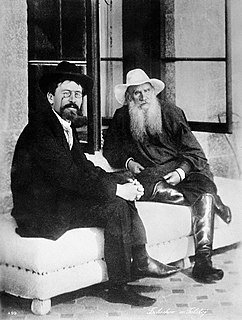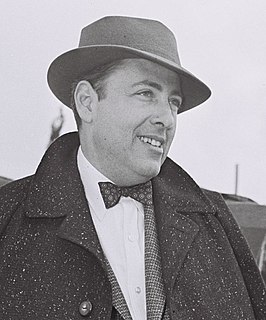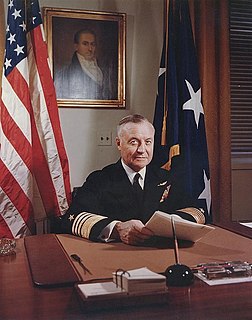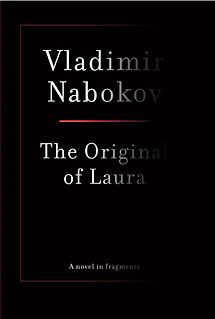And to My Nephew Albert I Leave the Island What I Won off Fatty Hagan in a Poker Game is a novel written by David Forrest (pen-name used by English novelists Robert Forrest-Webb and David Eliades). It is the best known novel of the author(s).
First published in 1969, the novel tells the story of a Russian spy-ship (the Dmitri Kirov) crashing into Albert's small island in the Isles of Scilly. Desperate to stop the ship's highly-secret equipment falling into the hands of the British and Americans, the Soviet government agrees to buy the half of the uninhabited island the "Dmitri Kirov" is stranded on.
When the American intelligence services discover this Russian acquisition, they immediately purchase the other half of the island. Thereafter, in a humorous tone, the author discusses the initial suspicious coexistence between the Russians and the Americans, which is transformed, amid a comic love story, into a communal friendship and enterprise to manufacture alcohol for their joint enjoyment and feasts...
The novel has been translated in many languages :

Forrest James Ackerman was an American magazine editor; science fiction writer and literary agent; a founder of science fiction fandom; a leading expert on science fiction, horror, and fantasy films; a prominent advocate of the Esperanto language; and one of the world's most avid collectors of genre books and film memorabilia. He was based in Los Angeles, California.

Vladimir Vladimirovich Nabokov, also known by the pen name Vladimir Sirin, was a Russian-American novelist, poet, translator, and entomologist. Born in Russia, he wrote his first nine novels in Russian (1926–1938) while living in Berlin. He achieved international acclaim and prominence after moving to the United States and beginning to write in English. Nabokov became an American citizen in 1945, but he and his wife returned to Europe in 1961, settling in Montreux, Switzerland.

Forrest Gump is a 1994 American comedy-drama film directed by Robert Zemeckis and written by Eric Roth. It is based on the 1986 novel of the same name by Winston Groom and stars Tom Hanks, Robin Wright, Gary Sinise, Mykelti Williamson and Sally Field. The story depicts several decades in the life of Forrest Gump (Hanks), a slow-witted and kindhearted man from Alabama who witnesses and unwittingly influences several defining historical events in the 20th century United States. The film differs substantially from the novel.

The Kirov class, Soviet designation Project 1144 Orlan, is a class of nuclear-powered guided missile cruisers of the Soviet Navy and Russian Navy, the largest and heaviest surface combatant warships in operation in the world. Among modern warships, they are second in size only to large aircraft carriers, and of similar size to a World War I-era battleship. The Soviet classification of the ship-type is "heavy nuclear-powered guided missile cruiser". The ships are often referred to as battlecruisers by Western defence commentators due to their size and general appearance.

Russian literature refers to the literature of Russia and its émigrés and to Russian-language literature. The roots of Russian literature can be traced to the Middle Ages, when epics and chronicles in Old East Slavic were composed. By the Age of Enlightenment, literature had grown in importance, and from the early 1830s, Russian literature underwent an astounding golden age in poetry, prose and drama. Romanticism permitted a flowering of poetic talent: Vasily Zhukovsky and later his protégé Alexander Pushkin came to the fore. Prose was flourishing as well. Mikhail Lermontov was one of the most important poets and novelists. The first great Russian novelist was Nikolai Gogol. Then came Ivan Turgenev, who mastered both short stories and novels. Fyodor Dostoevsky and Leo Tolstoy soon became internationally renowned. Other important figures of Russian realism were Ivan Goncharov, Mikhail Saltykov-Shchedrin and Nikolai Leskov. In the second half of the century Anton Chekhov excelled in short stories and became a leading dramatist. The beginning of the 20th century ranks as the Silver Age of Russian poetry. The poets most often associated with the "Silver Age" are Konstantin Balmont, Valery Bryusov, Alexander Blok, Anna Akhmatova, Nikolay Gumilyov, Sergei Yesenin, Vladimir Mayakovsky, and Marina Tsvetaeva. This era produced some first-rate novelists and short-story writers, such as Aleksandr Kuprin, Nobel Prize winner Ivan Bunin, Leonid Andreyev, Fyodor Sologub, Yevgeny Zamyatin, Alexander Belyaev, Andrei Bely and Maxim Gorky.

Herman Wouk was an American author best known for historical fiction such as The Caine Mutiny (1951) which won the Pulitzer Prize.

The Brothers Karamazov, also translated as The Karamazov Brothers, is the last novel by Russian author Fyodor Dostoevsky. Dostoevsky spent nearly two years writing The Brothers Karamazov, which was published as a serial in The Russian Messenger from January 1879 to November 1880. Dostoevsky died less than four months after its publication.

Galápagos (1985) is the eleventh novel published by American author Kurt Vonnegut. Set in the Galápagos Islands after a global financial disaster, the novel questions the merit of the human brain from an evolutionary perspective. The title is both a reference to the islands on which part of the story plays out, and a tribute to Charles Darwin on whose theory Vonnegut relies to reach his own conclusions. It was published by Delacorte Press.

Forrest Percival Sherman was an admiral in the United States Navy and the youngest person to serve as Chief of Naval Operations until Admiral Elmo Zumwalt in 1970. The Forrest Sherman-class destroyer was named for him.

Kirov is the lead ship of the Kirov class of nuclear-powered guided missile cruisers. Originally built for the Soviet Navy and passed onto the succeeding Russian Navy, she and her three sister ships are the largest and heaviest surface combatant warships ever built. The Soviet classification of the ship-type is "heavy nuclear-powered guided missile cruiser", nonetheless Kirov's size and weapons complement have earned her the unofficial designation of a battlecruiser throughout much of the world, as her size and displacement is similar to a typical World War I battleship. The appearance of the Kirov class was a significant factor in the U.S. Navy recommissioning the Iowa class. She was named after a Project 26 cruiser.

The Original of Laura is an incomplete novel by Vladimir Nabokov, which he was writing at the time of his death in 1977. It was published by Nabokov's son Dmitri Nabokov in 2009, despite the author's request that the work be destroyed upon his death.
Vladimir Ivanovich Savchenko was a Soviet Ukrainian science fiction writer and engineer.

Cloud Atlas is the third novel by British author David Mitchell. Published in 2004, it won the British Book Awards Literary Fiction award and the Richard & Judy Book of the Year award. It was short-listed for the Booker Prize, Nebula Award for Best Novel, and Arthur C. Clarke Award, among other accolades. Unusually, it received awards from both the general literary community and the speculative fiction community. A film adaptation directed by the Wachowskis and Tom Tykwer, and featuring an ensemble cast, was released in 2012.

Resurrection, first published in 1899, was the last novel written by Leo Tolstoy. The book is the last of his major long fiction works published in his lifetime. Tolstoy intended the novel as a panoramic view of Russia at the end of the 19th century from the highest to the lowest levels of society and an exposition of the injustice of man-made laws and the hypocrisy of the institutionalized church. The novel also explores the economic philosophy of Georgism, of which Tolstoy had become a very strong advocate towards the end of his life, and explains the theory in detail. The publication of Resurrection led to Tolstoy's excommunication by the Holy Synod from the Russian Orthodox Church in 1901.

Vladimir Afanasyevich Obruchev was a Russian and Soviet geologist who specialized in the study of Siberia and Central Asia. He was also one of the first Russian science fiction authors.

Per Petterson is a Norwegian novelist. His debut book was Aske i munnen, sand i skoa (1987), a collection of short stories. He has since published a number of novels to good reviews. To Siberia (1996), set in the Second World War, was published in English in 1998 and nominated for the Nordic Council Literature Prize. I kjølvannet, translated as In the Wake (2002), is a young man's story of losing his family in the Scandinavian Star ferry disaster in 1990 ; it won the Brage Prize for 2000. His 2008 novel Jeg forbanner tidens elv won the Nordic Council Literature Prize for 2009, with an English translation published in 2010.
David Forrest is a pen-name used by English novelists Robert Forrest-Webb and David Eliades to write four books, And to My Nephew Albert I Leave the Island What I Won off Fatty Hagan in a Poker Game (1969), The Great Dinosaur Robbery (1970), After Me, the Deluge (1972), and The Undertaker's Dozen (1974). These books featured tight plotlines and riotous humor, touching at the same time some serious topics: The Great Dinosaur Robbery and Nephew deal with the Cold War, After Me, the Deluge with religion.
Dmitri Vladimirovich Nabokov was an American opera singer and translator. Born in Berlin, he was the only child of Russian parents: author Vladimir Nabokov and his wife Vera; they emigrated to the United States from France in 1940. He later was naturalized. In his later years, Nabokov translated many of his father's works into other languages, and served as the executor of his father's literary estate.

This article is about the society and culture in Saint Petersburg. St. Petersburg has always been known for its high-quality cultural life, and its best known museum is the Hermitage.

Norwegian author Kjersti Annesdatter Skomsvold made her literary debut in 2009 with the novel Jo fortere jeg går, jo mindre er jeg. The book won the Tarjei Vesaas' Debutant Prize, and it was shortlisted for the International Dublin Literary Award 2013. Skomsvold has dramatized the novel and the play premieres at the National Theatre (Oslo) in 2014.